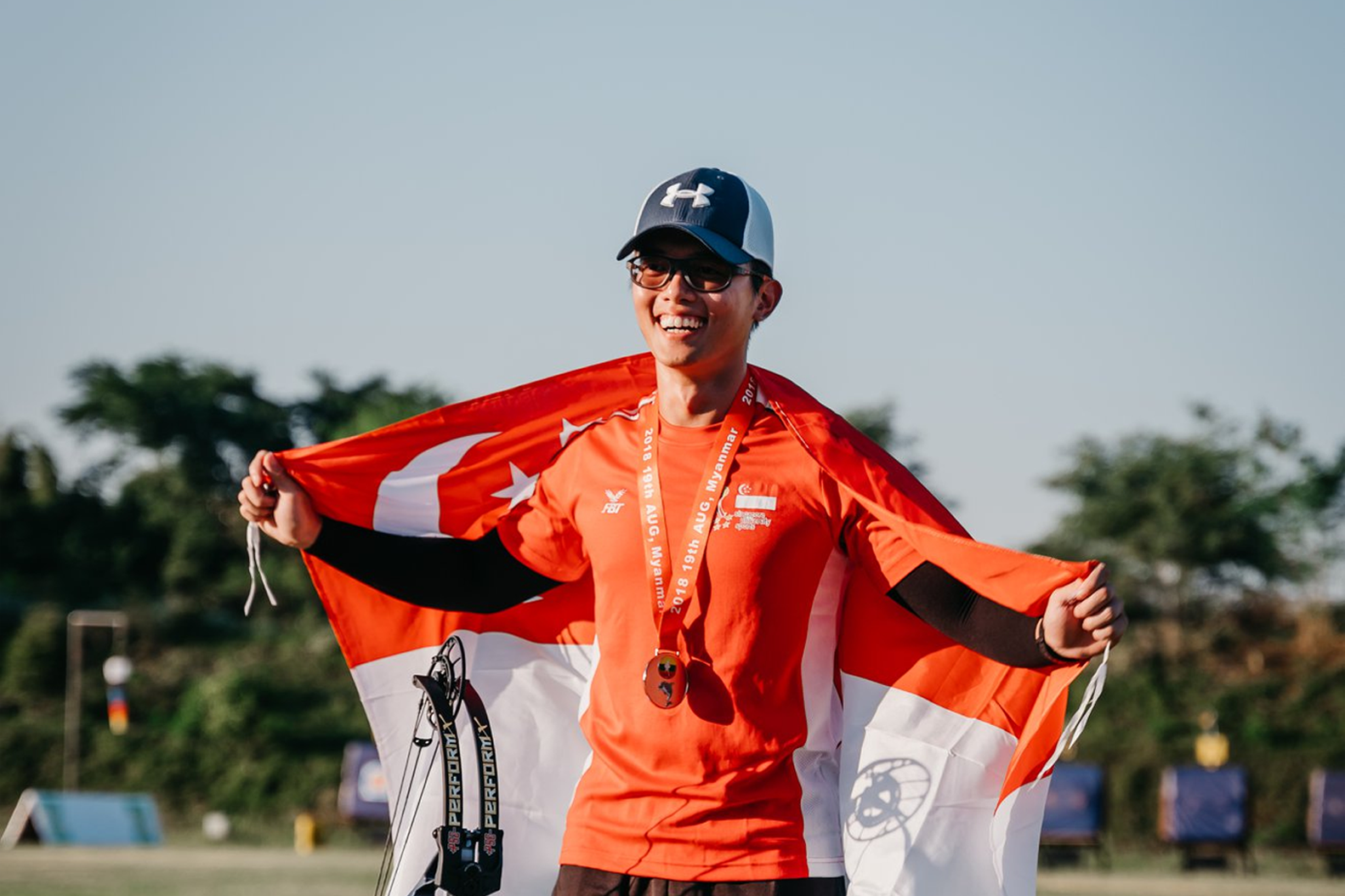In archery, as in Christianity, we continuously strive for perfection while knowing we will never reach it.
We all know the goal: to hit the bull’s eye every time. Yet, more often than not, we miss the mark.
In fact, the game is defined by our failure. Our misses are clear for all to see, and we are measured and identified by how much we fall short.
I have always been a perfectionist, which while making me well-suited for my sport, is also my downfall.
While my refusal to accept anything less than the best for myself enabled me to rise to the top positions in my field nationally, the immense pressure I felt to perform often affected my results too.
Archery is a very mental sport, and often, the voices in our heads can be the one to drag us down.
As an athlete representing my country, the opinions of others often weighed down tremendously on me, and the more I was in the limelight, the more I was paralysed by it.
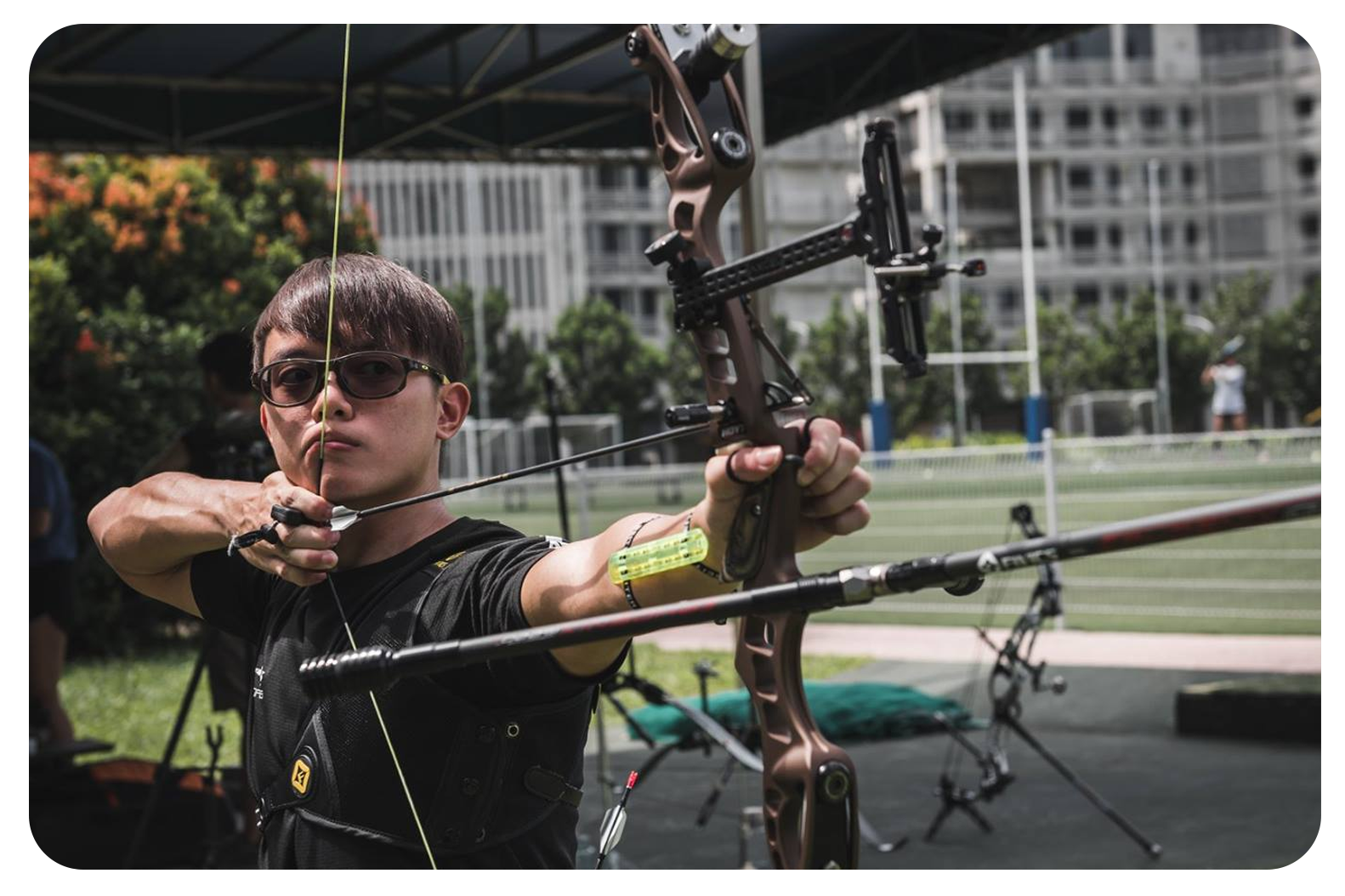
Sports was all about winning, and about pleasing my stakeholders: my coach, my teammates, the audience, the country. Their expectations were my expectations.
When someone looked at my past results and said “aiyah, he’ll surely win lah”, I would take their words and hold on to them like an anchor.
On the other hand, when people did not have good things to say, or even if they had exceedingly high expectations, it could weigh me down instead.
The pressure to meet these standards and results expected of me often became a distraction whenever I entered the range.
And the first bad shot would add to the weight: “I messed it up, I am going to lose.”
The stress would lead to the next bad shot, and the next. By the end of the match, an athlete could be a very defeated and dispirited person.
When an athlete’s identity and confidence is built on the expectations of others, his self-worth fluctuates according to what and who they choose to celebrate.
Having to face the rejection of the crowd and the disappointment of peers and loved ones afterwards would only cause the depressive spiral to burrow even deeper.
People tend to only celebrate the winners, especially in a results-oriented society like ours. But there can only be one winner at any one time: everyone who is not first is technically a loser.
Even an “it is okay” from others is more of a consolation than support — you know that they were hoping you would win, or worse, that they expected you to. “I thought he was a champion,” they might say.
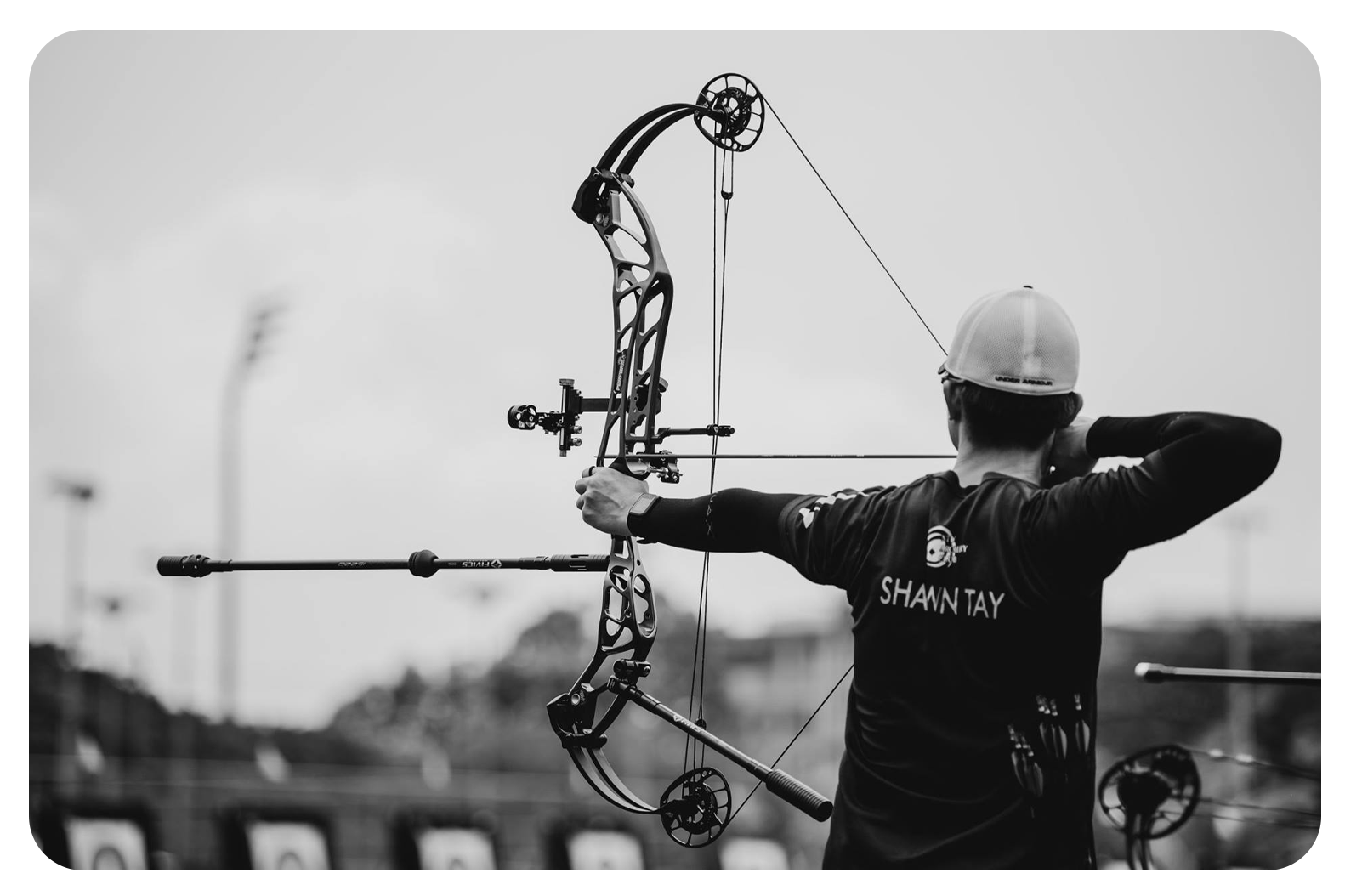
When an athlete’s identity and confidence is built on the expectations of others, his self-worth fluctuates according to what and who they choose to celebrate.
Once, my archery team shared a flight home with a different national team who had just won medals at the SEA Games. We had narrowly missed out on the bronze medal and were feeling devastated.
But what made it worse was that when we touched down, there was a welcome celebration and a cheering crowd for the winners — and not a single person to greet us.
You only received any attention if you won; otherwise, no one even bothered to encourage or console you. In moments like this, it was easy to feel worthless, and that all my effort in the sport was for nothing.
In 2015, my fellow archer and training buddy Si Lie invited me to Athletes in Action’s (AIA’s) Ultimate Training Camp.
At that point, while I considered myself a Christian, I did not see how Christianity and my sports career could be integrated.
God was a God who had died for my sins so that I could go to heaven, but what did that have to do with sports?
In sports, I had to win. I had to remain top-standard, praiseworthy and relevant, and I had to fight for it at all costs. People expected the best from me, and so did I, and I had to do whatever I could to ensure I matched up.
So I was quite struck at the first principle of AIA that was taught at the camp: that we played for the audience of One.
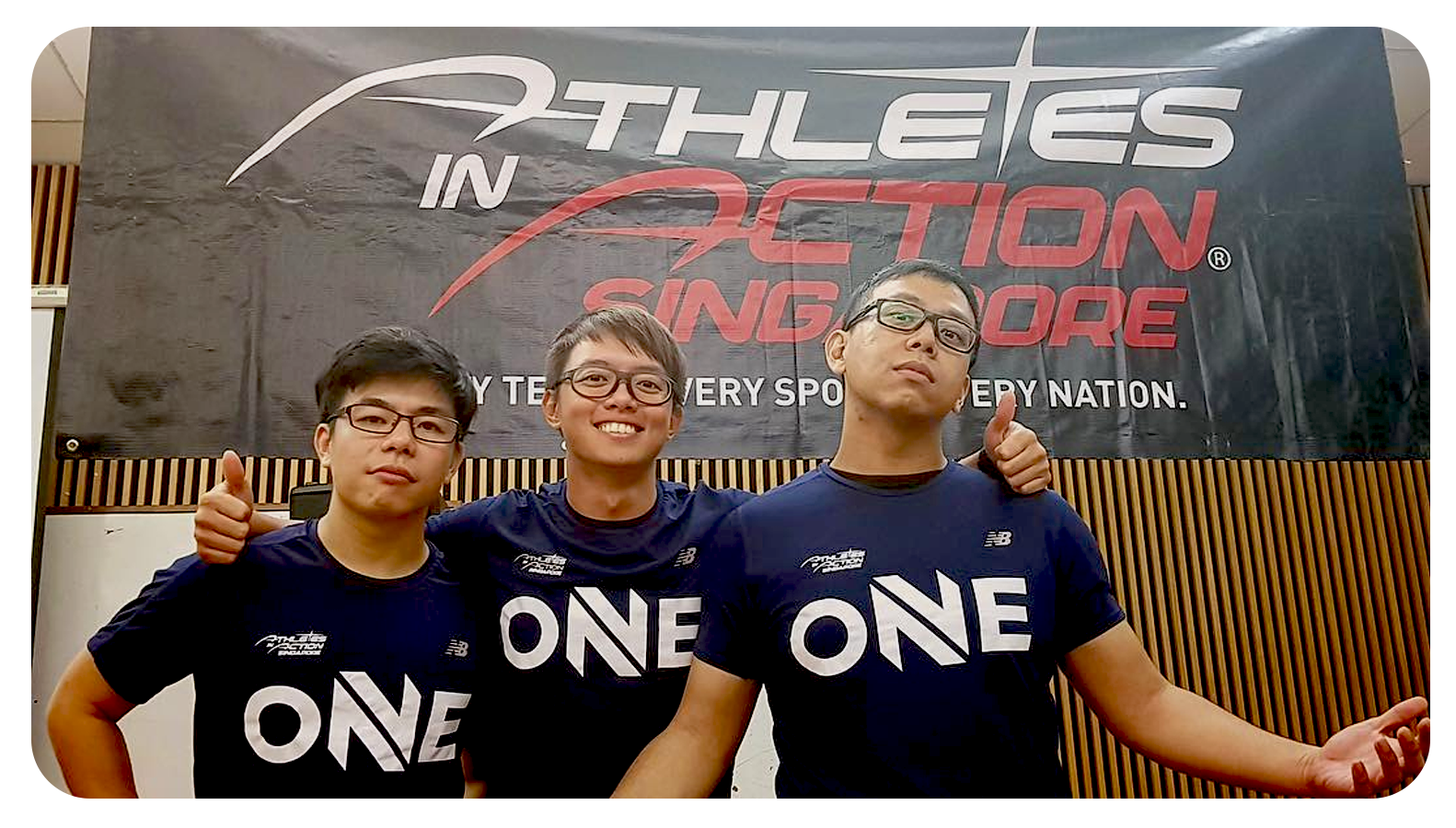
We were asked: Who do we worship? Who, or what, did our identity hinge on? Who, or what, was the basis of our self-worth?
It might seem extreme to suggest that we might be worshipping the audience and our stakeholders as idols, and even more far-fetched to suggest that God should be the only one we play for. After all, is it not reasonable for other people to matter just a little bit?
But up till then, my entire mindset and focus was on winning — and winning is always considered in relation to one’s peers. I had to be better than everyone else.
Being the best in my field, and maintaining the status of being a champion in people’s eyes, was all that mattered to me. My entire sense of worth and identity rose and fell based on the performance and the opinions of other people.
As one who needs to maintain the status and image of being a victor, you tend to be careful to conceal anything that might tarnish that reputation.
The second principle that AIA taught was on the “inside game”. What motivates us to perform?
I was motivated by fear — fear that I would be rejected and devalued in people’s eyes, or that I would move from the top spot into oblivion and worthlessness.
If you are not the first, you are a failure. Every time I stepped out into the range, I was driven by fear that I would not be top.
Such a motivation was a shackle to me — it caused me to spiral into a pit every time I had to face defeat, and eventually, it turned into a dread of competitions altogether.
What did it mean for God to come into my sport? Fully accepting that He is my Creator and Lord helped me understand the meaning and purpose of my sport in a new light.
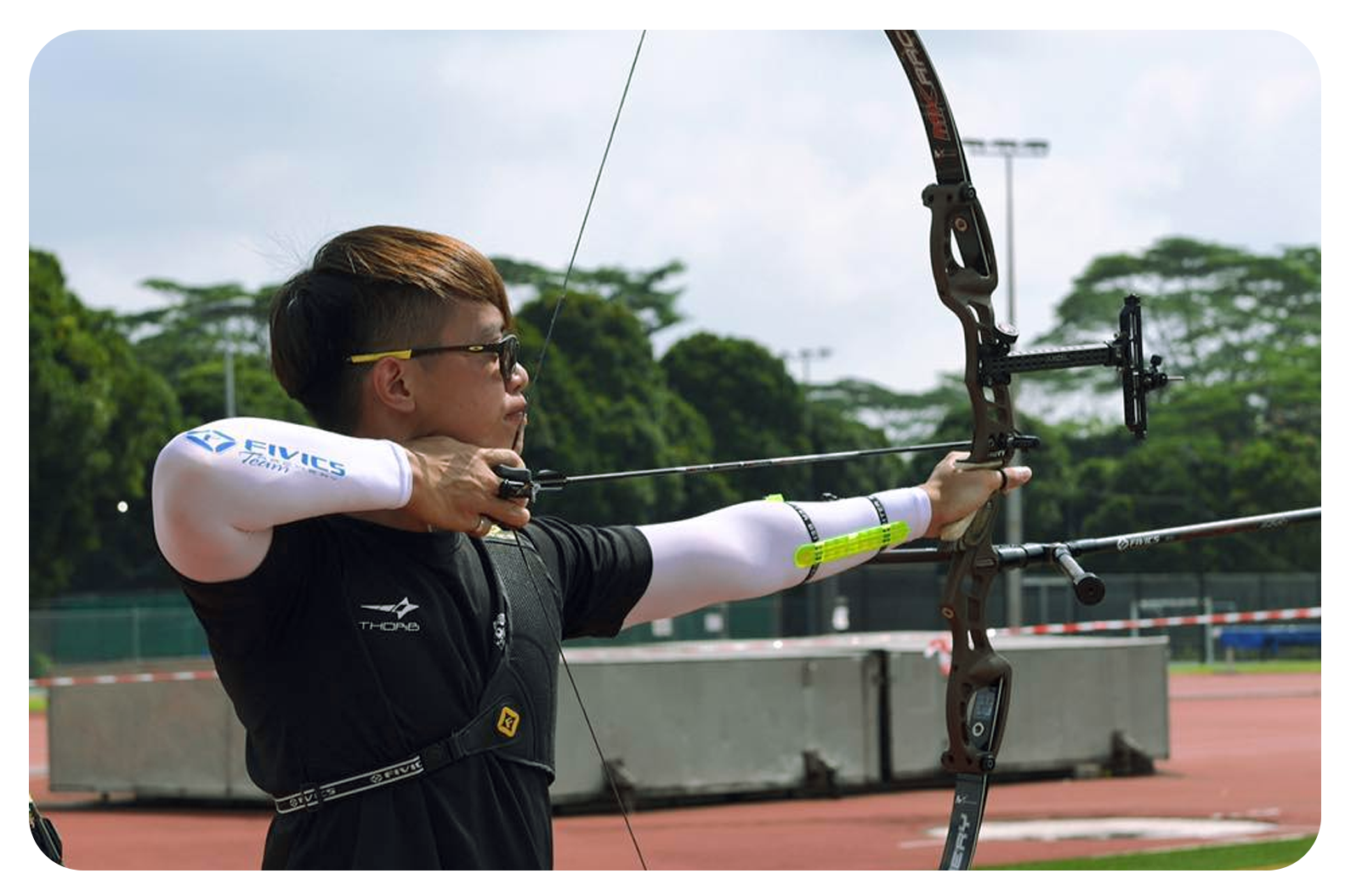
God is the one who created my ability to play. He gives me my talent and He already knows my maximum limits.
He does not need or expect anything of us; we do not need to win any gold medals for Him to approve of us. His boundless love for me is regardless of my performance — or even my mistakes and slip-ups.
To play for the audience of One means that I do not play in order to maintain a certain image or meet anyone’s expectation.
God is the constant and dependable anchor, not people who may cheer or jeer depending on the season and situation. He is already fully aware of what I can do.
Because of this, I can cast away all opinions that others may have, and play in response to the love and the gift He has given me.
I compete not because I fear being devalued or rejected, but because I am free to do so, in the knowledge that my worth does not depend on the outcome.
Fully accepting that He is my Creator and Lord helped me understand the meaning and purpose of my sport in a new light.
Journeying with Ivin and Jia Xian, my AIA mentors, also gave me a different perspective of how to be an athlete and a Christian.
In a typical mentoring relationship, the mentor usually wants to find out everything about the mentee and provide advice, but they might not share about their own struggles and vulnerabilities with the mentee.
There is an unspoken divide — the mentor often sees the need to keep up a professional image, and that might entail not making their weaknesses known.
But Ivin and Jia Xian journeyed alongside me as brothers in Christ, willing to share about their own challenges openly. Ivin would always say that it is okay to struggle. Sometimes, the struggle was good, and we had to keep struggling.
As a mentor, Ivin did not always seek to fix my problems; he did not always presume to have the answers. But just walking alongside me and affirming me in the struggle — and struggling with me at times — was often enough to build me up.
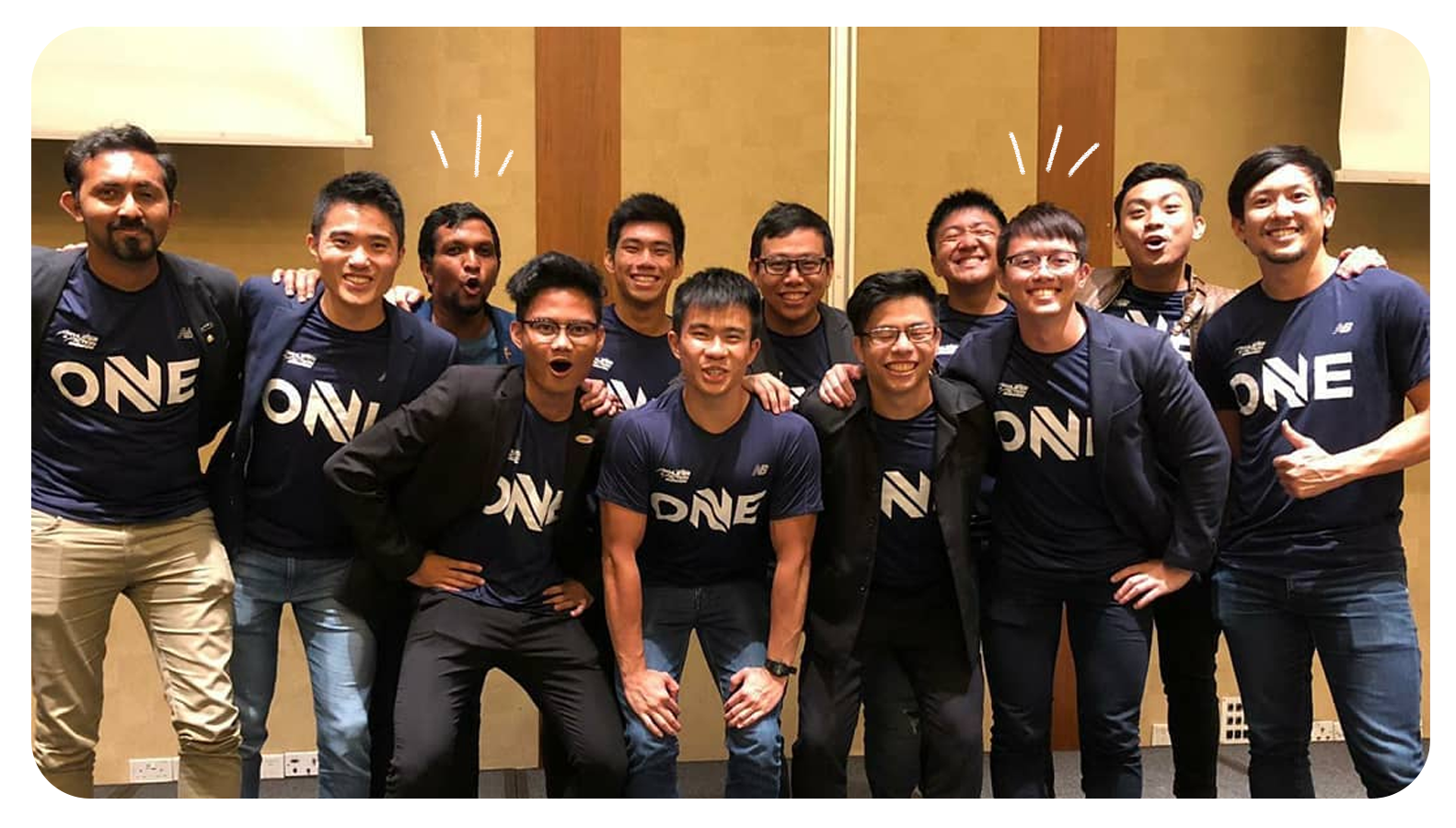
This culture of open and vulnerable sharing, I noticed, permeated the culture at AIA, and was a stark contrast to how I understood I should be as an athlete — or even as a Christian.
As one who needs to maintain the status and image of being a victor, you tend to be careful to conceal anything that might tarnish that reputation. To make your weaknesses known puts you at a disadvantage.
Even in the Christian circle, many often put up walls and try to appear blameless for fear of being judged by those around us.
My concern about the opinions of others and my perfectionist tendencies resulted in me going through a lot of my struggles privately and beating myself up when I was less than perfect, with no one else to turn to for advice or comfort.
But God already knows that we cannot be perfect, and that is okay.
When we recognise that our identity lies not in our performance but in God, who has already seen everything about us and who will never love us any less, it frees us to face our struggles and come to God more authentically.
Through my journey with AIA, there have been some noticeable areas of growth.
First, the way I see winning changed dramatically. While I used to see the need to win at all costs, AIA helped me understand that sports was more about celebrating and responding to what God has created for and within me.
Of course, my teammates still expect me to deliver for the sake of the team, but winning is no longer for winning’s sake, nor is my identity tied to what I can or cannot do in the moment.
Rather, I honour my gift and glorify the God who gives it to me, and the knowledge that my worth runs deeper than my performance frees me up to do my best in confidence rather than in fear.
Beyond that, I came to see sports as a channel that God could use to impact the lives of others. At the end of the day, what is more lasting than a single victory or people’s applause is God working His eternal plan through our lives.
I have come to see this as the true victory — God impacting those around us and leading them to salvation.
Since being a part of AIA, my buddy Si Lie and I were able to bring the Ultimate Training Camp to some of our teammates as well. The joy of witnessing our peers accept Christ and be impacted by His transformative love is far more rewarding and enduring than any medal.
I have come to see this as the true victory — God impacting those around us and leading them to salvation.
As I allow God to work in my life, my sports journey has become far more rewarding and fruitful than a mere matter of winning or losing. Interestingly enough, my change in perspective has also led to a tangible performance increase.
As I approached competitions with a sense of freedom, confidence and reassurance rather than dread and fear, and as I fixed my eyes on the audience of One rather than the many whose expectations could be overpowering, my results in the range significantly improved.
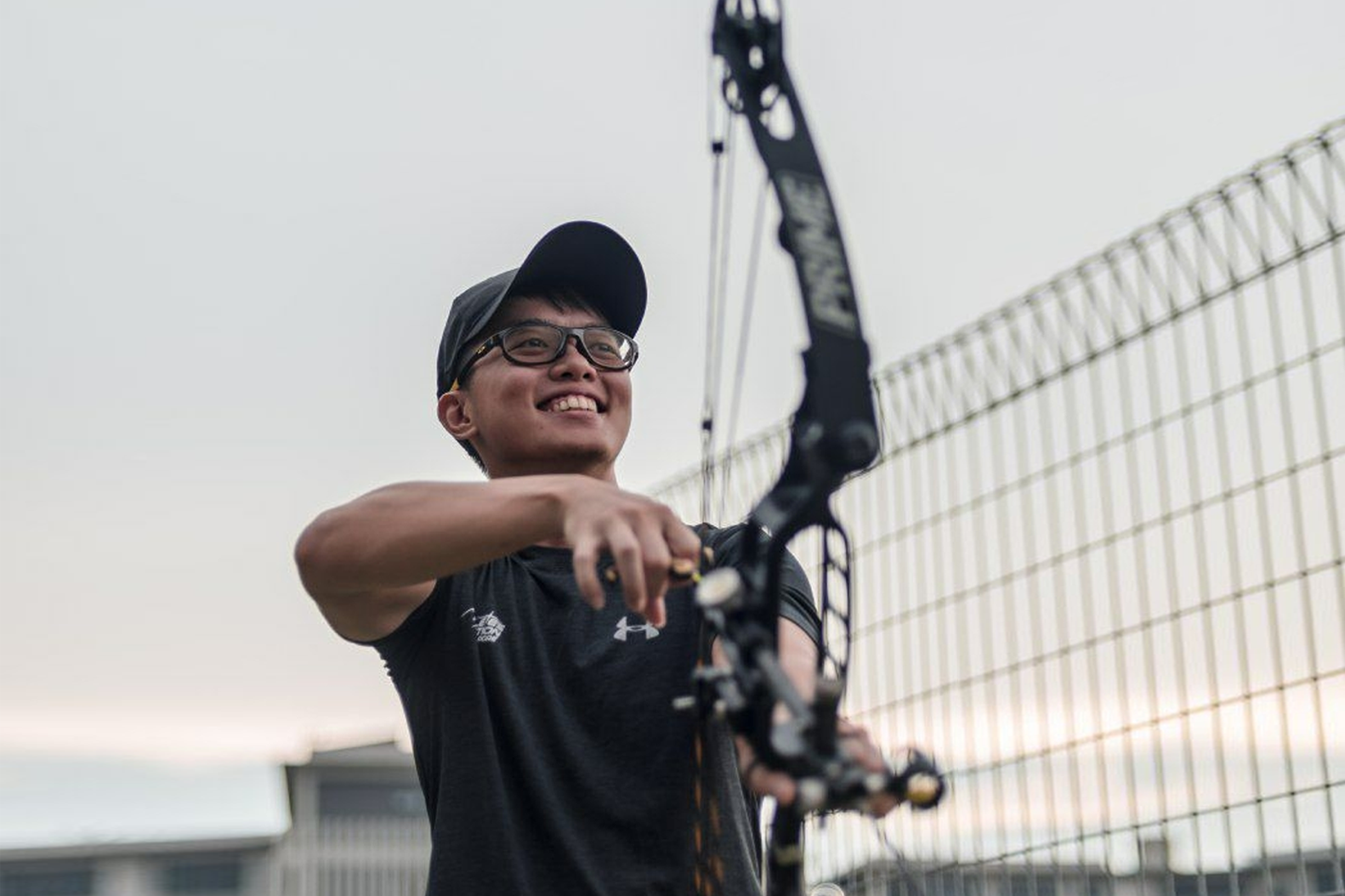
Of course, the Christian’s walk is not always straight: there were times that I forgot who I was and what I played for, and let my desire for self-glory and public praise get to me again.
Yet, the more I made it a habit to read the Bible and meditate on the Word, the easier it was for me to come back to God’s truths and approach sports with the right mindset.
Even in the midst of a competition, whenever I caught myself slipping into fear and stress, I would take a quick time-out to look to God in prayer and remember what He says about us.
Previously, the pressure and panic would just pile onto me uncontrollably, but I have gotten better at recognising where my thoughts need to be reined in and re-aligned.
As I make it a point to remember God as my anchor, and that my identity in Him is not dependent on what I can do but on the unchanging truth of His love, my performance and my emotions have become less volatile.
When I focused on God as my sole purpose and motivation, I came to see that my opponents were here to do the same thing that I was.
As God transformed my mindset through my time with AIA, the way I viewed my competitors also changed. Back when I felt the need to win at all costs, I saw my opponents as enemies I had to conquer.
Furthermore, when they taunted me or when the audience was rooting for someone else, it added to my performance anxiety since I felt the need to gain their approval and recognition.
On the other hand, when I focused on God as my sole purpose and motivation, I came to see that my opponents were here to do the same thing that I was: to perform to their best ability and to honour what they, too, have been given.
I felt more free to treat them with grace and to see them as peers trying to sharpen one another.
Sports often reveal our character, especially in the face of trials.
When we have to deal with failure, our attitude and character — what we place our hopes on, how we view ourselves and others, what drives us and breaks us — are made clear.
No one likes to talk about failure: it is humiliating, typical and boring. Rather, we pin so much on the rare, fleeting instances of victory and applause.
But in sports, as in our Christian walk, we are bound to miss the mark far more often than we are able to hit the standard of perfection.
Rather than bury our weaknesses, may we be willing to boast in them, so that Christ’s power may rest on us.
To commemorate their 10th year of ministry, Athletes in Action (AIA) Singapore has published a book, My Game His, Glory, which comprises 10 devotionals and 7 stories of athletes and sports professionals.
This article was adapted from a story in the book and has been republished with permission.
My Game, His Glory is available as a complimentary gift with a minimum donation of $50 towards the local and overseas work of AIA. For details, visit cru.sg/AIA10.
To find out more about AIA, you can also get in touch here.
- What kind of pressure are you currently facing? What’s driving that?
- Where do you derive your self-worth from?
- How can you begin to build your identity in Christ and what God says about you?


